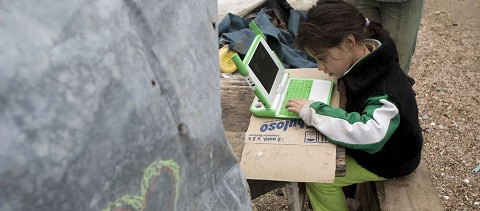
GCED Basic Search Form
Quick Search
Vous êtes ici
Nouvelles

On April 29 of 2020, UNESCO, together with the Regional Cluster of Education for Latin America and the Caribbean, held the second session of the series of COVID-19 webinars on education in Latin America and the Caribbean “Leave no one behind in times of the pandemic". On this occasion, the conversation addressed the topics of gender, education and COVID-19, focusing specifically on the consequences of the current educational situation on girls.
This session featured presentations by representatives of the Ministry of Education of Argentina, the World Association for Sexual Health, Plan International and UN Women. The event, which brought together over 700 participants from 31 countries, was facilitated by UN Women and Plan International.
Janaina Hirata, Regional Specialist in Education in Emergencies of Plan International, highlighted the relevance of incorporating the gender perspective in emergency policies and responses, as well as in the reopening of schools.
Andrea Conde, Director of Human Rights, Gender and Comprehensive Sexuality Education of the Ministry of Education of Argentina, explained how the current context can be an opportunity to address historical issues of gender inequalities, such as the burden of care assumed by women within families. In this sense, it is key to consider the importance of solidarity, of redistributing this burden and, through education, of deconstructing the prevailing gender stereotypes in our societies.
Esther Corona, vice president of the World Association for Sexual Health, introduced some of the institutional response strategies that have been developed in Mexico and identified short and medium-term challenges. Among them is the need to strengthen multisectoral responses to gender issues in education and the provision of comprehensive sexuality education as part of the alternative education modalities that have been implemented.
Finally, from the Regional Education Cluster, Amalia Alarcón, Regional Manager of Transforming Gender and Influence Programs of Plan International, reviewed the regional situation, highlighting the difficulties, barriers and human right violations that girls in the region have experience before, during and after the health crisis, focusing on the main challenges of each stage of the response to guarantee their well-being and right to education. Within this framework, Dana Barón, Migration Advisor at UN Women, highlighted some key messages to strengthen the educational response, addressing its gender dimension. These messages included the need to raise awareness among teachers on the increased risk of gender-based violence and sexual abuse, to advocate for an equitable distribution of household chores, and to involve and discuss with communities the importance of education for girls as part of alternative education programs.
At the end of the session, Paula Klenner, Associate Program Coordinator at the UNESCO Regional Office for Education, reviewed the main issues discussed in the event, stating that while many girls will continue their education once schools reopen, some of them may never return to them. This is why educational responses must prioritize the needs of girls, adolescents, and young people, at the risk of reversing 20 years of educational achievement in the region.
See the topics of the next seminars
URL:
